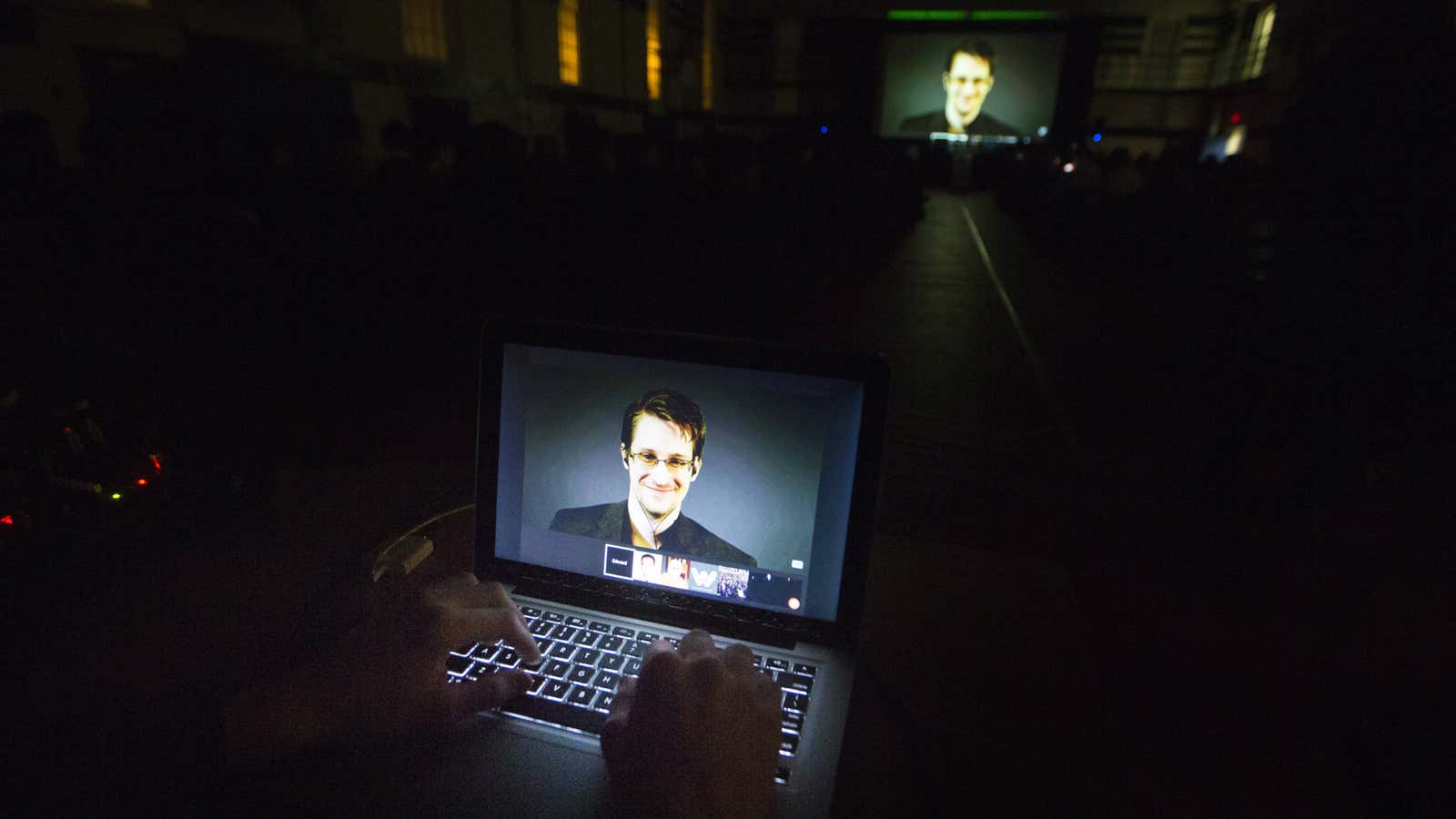Edward Snowden has strongly defended citizens’ rights to encrypt their messages, and has taught journalists how to use encryption to protect themselves from spying programs.
But the NSA whistleblower sees a downside to encrypting so much information: aliens may not be able to spot signs of intelligent life.
Snowden, appearing on Neil deGrasse Tyson’s StarTalk podcast via a video link from Moscow on Sept. 18, told the astrophysicist how encryption could interfere in our attempts at alien communication.
Done properly, encrypted communication—encoded so that only the intended recipient can read the information—can’t be identified and is indistinguishable from random behavior, Snowden said.
“So if you have an alien civilization trying to listen for other civilizations, or our civilization trying to listen for aliens, there’s only one small period in the development of their society when all of their communication will be sent via the most primitive and most unprotected means,” Snowden said. “So what we are hearing that’s actually an alien television show or, you know, a phone call … is indistinguishable to us from cosmic microwave background radiation.” Although as Tyson noted on his podcast, alien species might not be so keen on encryption. “Only if they have the same security problems as us,” he told Snowden.
Astronomers are indeed planning an interplanetary eavesdropping system to scan neighboring galaxies for radio signals. Though they will use two of the world’s most powerful telescopes, there’s a chance they could overlook encrypted messages.
But those hoping to find extraterrestrials needn’t give up, as aliens could always send an unencrypted message in an intentional effort to find us. Humans have the chance to do the same: a public competition organized by the Breakthrough Initiative is offering $1 million for the best message to be broadcast to aliens. (Any entries written in a human language will of course be instantly dismissed.)
